ITEA 3 Call 5 projects
Happiness, openness and trust
The fifth Call of ITEA 3 delivered 19 submitted Full Project Proposals (FPPs) and on 21 March, 17 projects were labelled, involving 16 countries and 3065 Person Years. This Call illustrates again how innovative SMEs and start-ups are involved in our Programme with more than 1600 Person Years (PY) compared to the 1000 PY for the large industrials. Nevertheless, the presence of these large industrials is key in the ITEA success recipe to help innovative SMEs to impact the market at global level and to scale up. A unique story.
Another very interesting exercise is to analyse how much the game is open in ITEA. The ITEA Founding Companies (IFCs), the large companies who manage the ITEA Programme, have less than 300 PY among them but their in-kind contribution for the management of the Programme is of premiere importance as it is this that gives ITEA its unique industrial and business orientation. 54% of the Call 5 partners are new companies in ITEA while 15.79% of the project leader companies have not been in an ITEA project leader position before. It means the ITEA Community is continuously rejuvenating. Another look at our statistics shows the impact we have on human capital. 73.68% of the ITEA project leaders have not been an ITEA project leader before. When you take into account that these project leaders must gather a unique set of qualities – International, High tech, Market Impact, HOT (Happiness, Openness, and Trust) value – then you realise that we are building the high profile required by the industry to help it be globally competitive.
The balance of content this year reveals its usual strong Smart Engineering orientation with 6 proposals, Smart Health is back, Smart Industry remains high and Smart Community after the dedicated costumer workshop is high with 4 proposals. The Security focus has been reduced with only 2 proposals, Smart Mobility and Smart City are rather low this year. A new domain around finance seems to be apparent with one proposal.
This year we have received a good set of proposals targeting rather innovative domains. These include food ingestion analysis for better health, automated farming, burnout management, learning for human capital, GDPR registry management, marketing, interoperable distributed ledger techno, synchro cloud / edge, trusted sharing data among CPS devices to allow machine learning, digital twin for HCI to adapt products, textual graphic engineering.
Hereafter you will find a short project description of each labelled project.
OVERVIEW OF PROJECTS
| Theme | Call 5 projects |
|---|---|
| Smart Communities | ADiMa, I-DELTA, OWE4SC, TIoCPS |
| Smart Engineering | BUMBLE, EMBrACE, ExA, IVVES, OXILATE |
| Smart Health | Food Friend, Mad@Work |
| Smart Industry | HU-Twin, MACHINAIDE |
| Smart Mobility | SMART |
| Safety & Security | APE, DEFRAUDify, CASCADE+ |

APE - 18003
Automatic Privacy Explorer
Project leader: Softeam (France)
Every company has to build its GDPR registry. Listing all personal data managed every day by the company can be an easy task but finding all other data rarely used and stored internally can be a real challenge. Automatic Privacy Explorer will help company's Data Protection Officer to explore all the company’s resources (Files, Excel, emails, Databases,) and identify which data is personal and has to be listed in the GDPR registry. In addition, APE will be able to synchronize GDPR registry with the actual data sources of the company helping to keep the registry up-to-date.

ADiMa - 18005
Analytical Digital Marketing system for high performance user impact
Project leader: JOT INTERNET Media (Spain)
The ADiMa project represents a new marketing approach where the service offered will centre on data, campaign performance and market impact through the participation of the entire technology and data value chain. By accomplishing this, ADiMa will generate two different business models that will increase the delivery of marketing services to SMEs, agencies and IT service providers, in turn promoting the visibility and competitiveness of European companies.

BUMBLE - 18006
Blended Modelling for Enhanced Software and Systems Engineering
Project leader: Alten (Sweden)
BUMBLE aims at providing an innovative system and software development framework based on blended modelling notations/ languages (e.g. textual and graphical). The framework provides automatic generation and management of fully-fledged blended modelling environments from arbitrary DSMLs. Blended modelling environments are expected to greatly boost the development of complex multi-domain systems by enabling seamless textual and graphical collaborative modelling.

DEFRAUDify - 18007
Detecting Fraudulent activities on the internet
Project leader: TNO (Netherlands) DEFRAUDify aims to develop tools that help private businesses to detect fraudulent behaviour on the internet. These tools are partly based on existing tools that have been developed for Law Enforcement. They will be adapted to become relevant for private businesses as well. DEFRAUDify aims at businesses that encounter negative impacts from internet organised fraudulent behaviour. The tools will consist of a set of interoperable tools that jointly analyse suspicious behaviour and provide situational awareness.
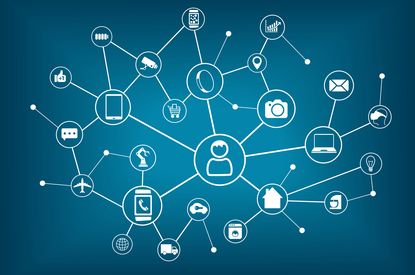
TIoCPS - 18008
Trustworthy and Smart Communities of Cyber-Physical Systems
Project leader: VTT Technical Research Centre of Finland Ltd. (Finland)
The motivation for the TIoCPS project arises from the grand challenge facing cyber-physical systems (CPS): the lack of trustworthy, smart and interoperable information/ data sharing and value exchange prevents the establishment of the data economy around CPS. The objective of the project is to technically enable trustworthy and smart communities for CPS systems (TIoCPS concept) for solving the grand challenge in the context of selected industrial use cases dealing with energy, mobility and user/owner CPS systems. The TIoCPS concept combined with the use case solutions are envisioned to boost the business of the respective industries and enable more trustworthy, smart, interoperable and sustainable industrial CPS ecosystem and society.

ExA - 18013
Execution Trace Analytics
Project leader: Expleo Germany GmbH (Germany)
Systems often produce traces in the form of textual logs, which are difficult to analyse. Most platforms allow logs to be filtered or checked against fixed properties, or they visualise logs in a few hard-coded ways. ExA (Execution Trace Analytics) will combine filtering and visual analysis to create nextgeneration system analysis tools that allow humans to understand the behaviour of large, complex systems. ExA will be the next-generation, visual log analysis toolset that addresses needs that are not covered by today’s tools.
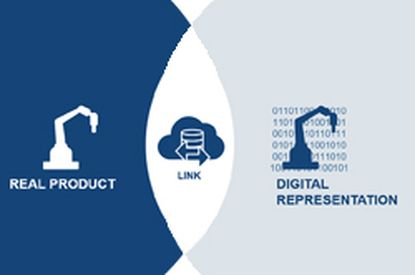
HU-Twin – 18014
Digital Twin for human product interaction: Human-device interacting Digital Twins
Project leader: Philips Electronics Nederland (Netherlands)
HU-Twin aims to create model-based interacting digital twins (DTs) to understand human-device interaction. Digital Twins are becoming common in the predictive maintenance of complex systems. These twins are mainly based on sensor information of the real system during its lifetime. The Twin predicts the behaviour of the system and thereby the required maintenance actions during the lifetime. The twin will help to speed up the innovation process, can help the engineering process, and can predict quality and reliability of the produced system. Special cases of Twins are those that try to predict human-device interaction either in the development phase or during the lifetime of the device.

CASCAdE+ - 18017
Compositional Analysis and Synthesis for Critical Embedded Applications
Project leader: Robert Bosch GmbH (Germany)
New services and solutions for future mobility and Industry 4.0 introduce a new level of complexity for software systems. This challenge is addressed within CASCAdE+ by introducing a compositional verification approach for verification support for parallel SW for multicore. It allows individual software components to be analysed separately, and then uses these results to construct an overall system that is verified, safe and secure. This approach will be standardised and designed in such a way that other verification solutions can be integrated easily. CASCAdE+ makes the software more resilient to safety and security issues.
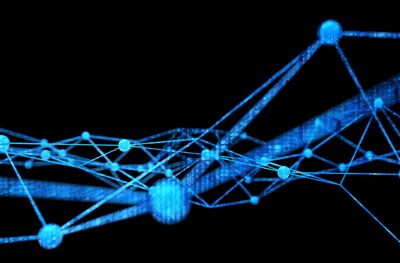
I-DELTA - 18021
Interoperable Distributed Ledger Technologies
Project leader: ERSTE Software Limited (Turkey)
Distributed Ledger Technologies (DLT) undoubtedly are a cutting-edge new breed of technologies with the potential to completely transform the way our society works. DLT will foster switching from the “Internet of Information” era to the “Internet of Value” era, whereby decentralised and immutable contracts define business interactions and secure exchanges of information. I-DELTA aims to create an interoperable DLT based platform enhanced by AI, integrating with existing IT systems such as ERP and IoT applications.
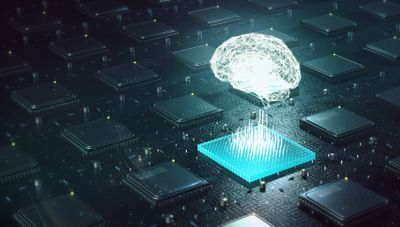
IVVES - 18022
Industrial-Grade Verification and Validation of Evolving Systems
Project leader: Fraunhofer FOKUS (Germany)
The use of AI and complex, evolving systems (ES), i.e. systems that rapidly change, either due to fast iteration cycles in development or due to their capability to self-adapt and learn, will grow significantly in automation, computation and novel digital services. Targeting the challenges in verification and validation of AI and evolving systems, IVVES will systematically develop Artificial Intelligence approaches for robust and comprehensive, industrial-grade V&V of “embedded AI”, i.e. machine-learning for control of complex, mission-critical evolving systems and services covering the major industrial domains in Europe.

OXILATE - 18023
Operational eXcellence by Integrating Learned information into AcTionable Expertise
Project leader: TNO (The Netherlands)
OXILATE is the successor of the successful ITEA REFLEXION project which supported a revolutionary change in the way of working of the high-tech systems industry’s R&D by introducing and integrating widespread available data analytic solutions from the open source / data science communities. OXILATE focuses on the complementary integration of expert knowledge to develop widely available support and tools for professionals with the objective of empowering them to transform their respective business activities, making them more proactive and effective, and to create direct business value over the whole product lifecycle they serve.

OWE4SC - 18024
Open Wise Edge for Smart Communities
Project leaders: VTT Technical Research Centre of Finland (Finland)
In our daily life digitalisation is everywhere and the digital world is blending with the physical world via the rollout of Internet of Things (IoT) technology. This project will focus on a collaborative R&D of the Open Wise Edge (OWE) technology platform and ecosystem. This unleashes the capabilities of AI, edge computing, edge communication, IoT, open source, open data and open models for holistic optimisation and innovation of new cyber-physical digital services for smart consumer and professional communities.

MACHINAIDE - 18030
Knowledge-based services for and optimisation of machines
Project leader: Demag Cranes & Components GmbH (Germany)
Machine builders have been collecting data related to their products within different formats and tools for several years. The number of related Digital Twins is constantly increasing, with manufacturers including the products of other manufacturers in their own range, for example through the acquisition of other companies. To cope with this development, MACHINAIDE aims to support innovative concepts for accessing, searching, analysing and using the data of multiple Digital Twins for the major purpose of increasing usability and functional upgrading of machines and equipment within the crane and printing machine domains.
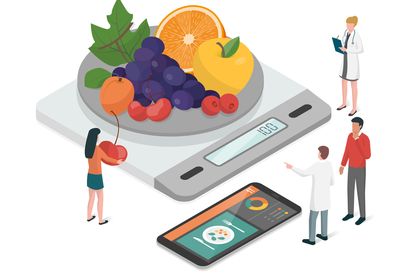
Food Friend - 18032
Autonomous and easy-to-use tool for monitoring of personal food intake and personalised feedback
Project leader: Katholieke Universiteit Leuven (Belgium)
The goal of the Food Friend project is to develop a complete toolset, consisting of hardware, software and methodologies, that can automatically measure a person’s food intake with a minimum of required user input and turn it into personalised and actionable feedback. The system can be used by care professionals, research institutions, caterers or home users to get a better overview of a person’s dietary behaviour.

Mad@Work - 18033
Boosting Mental Health and Productivity in the Workplace
Project leader: VTT Technical Research Centre of Finland Ltd (Finland)
This project focuses on the detection and mitigation of poor mental health conditions, such as work stress and burnout, which have not yet resulted in a diagnosed mental health disorder. The Mad@Work project aims at a major breakthrough in the development of software-intensive applications that combine multiple heterogeneous environmental and/ or wearable data sources into actionable information for improving employees’ wellbeing, engagement and performance. Mad@Work will develop truly unobtrusive, privacy-safe, appealing solutions, smoothly integrated into the work environment and appropriate for long-term use in diverse reallife settings.

SMART - 18036
Spatial Modelling Analytics and Real-time Tracking
Project leader: Esri Canada Limited (Canada)
The objective of the proposed Spatial Modelling Analytics & Real-time Tracking (SMART) Mobility Project is to mitigate growing urban traffic congestion challenges and associated issues of environmental degradation, economic inefficiency and negative impacts to the quality of life of citizens. SMART Mobility will revolutionise the efficiency of traffic and commuting in cities by leveraging the capabilities of new 4D spatial technology and analysis platforms using realtime vehicle location and movement data.

EMBrACE - 18039
Environment for model-based rigorous adaptive co-design and operation of CPS
Project leader: Electricité De France (France)
The next industrial revolution is evident in the combination of renewables, electric mobility and connected objects. The proper operation of complex systems requires cooperation between all stakeholders from the start of system design and all along the engineering lifecycle. The EMBrACE project will provide a user-friendly open environment for the co-design of CPS based on a common requirements modelling language, so that requirements can be easily understood, used to verify and optimise the system design, and ensure that the system design is robust in the face of real-life physical and economic constraints and uncertainties.
Other chapters
Use the arrows to view more chapters
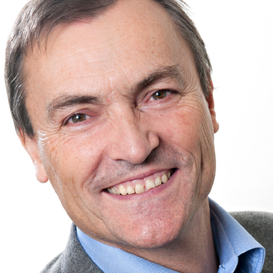
Editorial
By Philippe Letellier

Country focus: Sweden
An innovation force in a sustainable world!
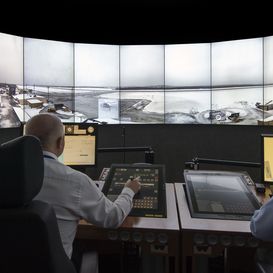
Country focus: Sweden - Saab AB
Commitment to trustworthy software innovation
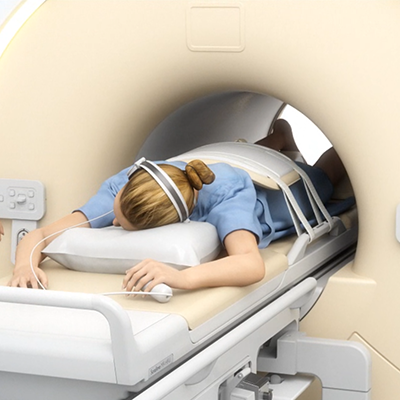
SoRTS Success story
A system of real-time systems for more effective healthcare

SotA BaaS
Semantic technologies and very traditional industry as Building
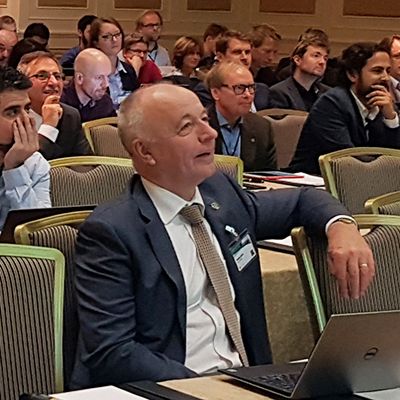
Community Talk with Fopke Klok
The Klok is ticking ... on life at ITEA ... and beyond

End user happiness FUSE-IT
Security of Smart Buildings: saving energy and lives!
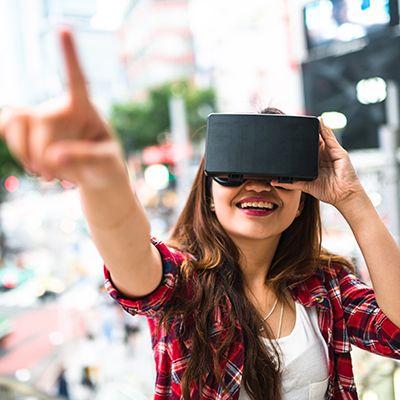
Metaverse1 Success Story
The missing link between the real and the virtual
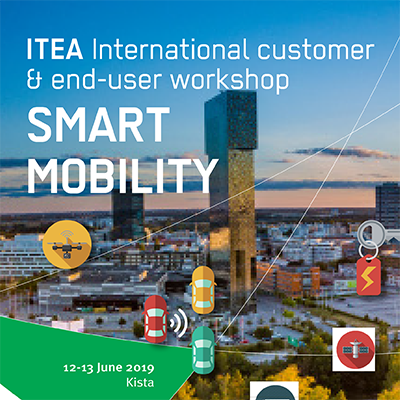
Customer workshop Smart Mobility
Help solve the challenges resulting from this ITEA customer workshop

SME spotlight IKANGAI
Your partner for mobile customer engagement

ITEA 3 Call 5 projects
Happiness, openness and trust

